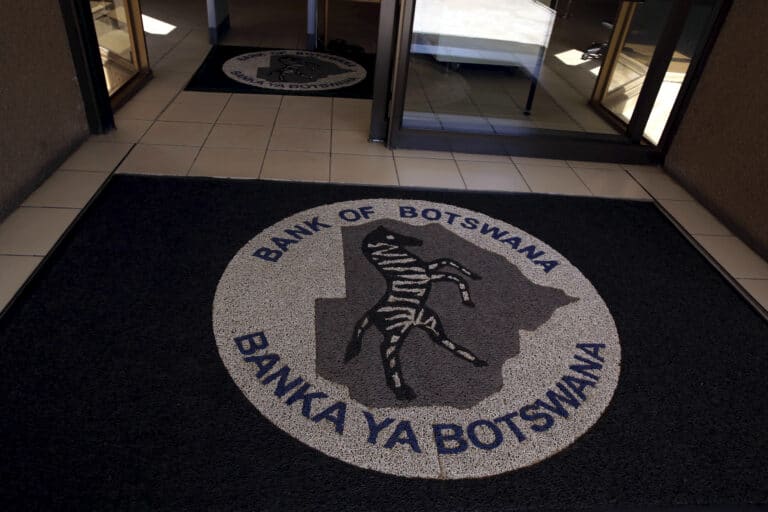The Central Bank of Botswana has again decided to maintain the country’s main interest rate at 1.90%, marking the fourth time in a row that the rate has stayed unchanged. The announcement was made on Thursday, April 17, 2025, by the Bank of Botswana in a public statement that aimed to reassure citizens, investors, and financial observers of the country’s steady economic direction.
This move by Botswana’s apex bank comes at a time when inflation in the country has seen a slight increase. According to official statistics, inflation went up to 2.8% in March 2025 from 2.7% recorded in February. Despite this upward movement, the central bank says the increase is not enough to cause panic or warrant any change to the current monetary policy.
The Governor of the Bank of Botswana, Mr. Moses Pelaelo, explained that the decision to hold the rate was informed by the bank’s commitment to keeping inflation within its medium-term target range of 3% to 6%. He said the monetary policy team believes that the current inflation levels are still within a safe zone and do not pose a serious threat to the economy.
“We are maintaining our policy rate at 1.90% because we believe the current inflationary trends are temporary and manageable. Our main goal remains to ensure long-term economic stability while supporting moderate growth,” Mr. Pelaelo said.
By not adjusting the rate, the Bank is also sending a message of confidence to businesses, investors, and households that the economic environment remains predictable and under control. Many economic experts believe that this kind of stability is important for planning and investment, especially in a small but growing economy like Botswana.
Financial analysts in Gaborone say that the Bank of Botswana is adopting a cautious but steady approach, trying to balance the need for growth with the fight against rising prices. They added that consistency in policy is key for countries like Botswana that rely on stable investment inflows and strong fiscal management to keep their economies going.
Some observers have linked Botswana’s strategy to what other central banks across Africa are doing. In neighbouring countries like Namibia and South Africa, central banks are also treading carefully with interest rate decisions due to ongoing global economic uncertainties, inflation risks, and the impact of the Russia-Ukraine war and its aftershocks.
In fact, across Africa, many central banks are facing the same dilemma – how to grow the economy without allowing inflation to get out of hand. Experts say that Botswana’s current approach appears to be working, as inflation remains within manageable limits and there is still confidence in the country’s financial system.
The Bank of Botswana has also said it will continue to monitor all economic indicators closely and will not hesitate to act if inflation begins to rise sharply or if any new economic shocks appear.
As of now, the central bank remains firm in its position that any future change in the interest rate will be based purely on economic data and not political or emotional decisions. This method, the bank said, will help protect the country from unnecessary instability.
The country’s monetary policy committee meets regularly to assess both local and global trends, and will reconvene again in the coming months to determine whether any adjustments are necessary.
For now, the people of Botswana and those doing business in the country can expect the borrowing environment to remain the same. This is good news for businesses trying to expand or households seeking loans, as a steady interest rate means lower borrowing costs and a more stable economy overall.
